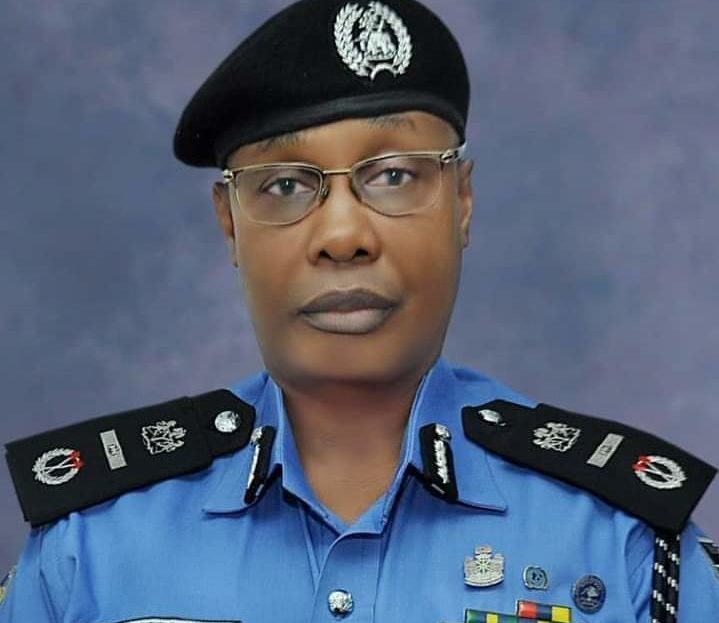A Lagos-based lawyer, Bolanle Raheem, was allegedly killed by one ASP Drambi Vandi in the Ajah area of Lagos State when she and her family were returning from Christmas service.
The report had it that some officers attached to the Ajiwe police station in Ajah had ordered the car conveying the Bolanle’s family to stop, and during that time, an officer allegedly shot at the car and the bullet hit the lawyer who was also said to be pregnant, and later confirmed dead at the hospital.
President Muhammadu Buhari through his spokesman, Garba Shehu on Tuesday 27th December 2022, condemned the killing of the lawyer and ordered immediate investigation of the case with appropriate measures against the culprit. Ditto the national leadership of the Nigerian Bar Association.
However, Such cases of extrajudicial killing by officers and men either deliberately, or arising from carelessness (better known as “accidental discharge”), or failure to observe safety precautions in weapons’ handling has caused serious harm to the corporate image of the force as a result of public criticism. Rule 341 of the Police Regulations No. 53 of 1968 provides that every police officer shall be personally liable for any misuse of power or for any act done in excess of his authority. Cases of extrajudicial killing by uniformed servicemen are so common nowadays that one might be right to feel that their commission is part and parcel of the officers’ way of life.
- Ogun: Two brothers ‘kidnap’ woman, son for ritual
- As Ambassador Ahmed Rufai Abubakar, CFR is turbaned Sardaunan Katsina
To my understanding, most of these cases of extra-judicial killings by the police mirrored their lack of understanding of the Police Force Order No. 237, and Riot Drill pamphlet of 1987 regarding the Rules guiding the use and control of firearms in making arrest of a dangerous suspect, and or quelling a disturbance in the country.
Cases have arisen in which police officers have in certain circumstances fired their rifles in the air. The explanation has been that this has been done as a warning or “to frighten” certain people or individuals to either stop and surrender for arrest or disperse from the group. But in a realistic side, rifles and ball ammunition are NOT supplied to the police to “frighten” people.
In fact, the wordings or command in Riot Drill – i.e aiming the leader of the rioters or the escaping suspect “At the knees”, should make this quite clear. If police are compelled to use their firearms, somebody is going to be hit. Although, only the minimum amount of “fire” necessary to achieve the object desired is to be used. Even in such circumstances, the armed officer has to make a proclamation for the suspect to surrender, or for the rioters to disperse before resorting to use of reasonable force.
It logically follows that no “warning short” is allowed where officers and men of the force fire in the air under any circumstances. Four reasons are adduced for why warning shorts are prohibited:
1. By firing in the air, strayed bullets can injure or kill people who are not connected with the disturbance or incidence;
2. No provision in the Riot Drill for firing in the air;
3. Firing in the air constitute a waste of ammunition and government revenue; and more dangerous also
4. Firing in the air will make rioters realise that the police are not serious or determined to deal firmly with the situation; the psychological effect on the mob finding itself confronted with firearms will be rendered naught. The mob may become more aggressive and cause members of the riot unit to panic which in turn may lead to indiscriminate firing by the rifle party.
However, the offences are caused to be committed by various factors which the authorities concerned (I mean, the government) can help to nip in the bud.
One of the immediate causes is the recalcitrance of many of our officers and men of the force not sticking to professionalism. As inexperienced as some officers are, these young men with little or no formal education and knowledge do everything possible to get enlisted without necessarily understanding the training rudiments, and the famous Force Order No. 237 and other regulations especially in weapons handling such as fixing loaded magazine to any firearms without reasonable excuse; failing to ‘examine’ or ‘ease spring’ before handing or taking over any firearms; pointing the muzzle of a loaded firearm at a person other than in the air above the head as directed in the safety precaution, and failure to ‘prove’ any firearm when handling or taking over or proceeding on duty. Consequently, such officers kill indiscriminately.
Other causes of extra judicial killings can be traced to the poor working conditions of the officers and men and their officials’ accommodations. On most occasions, the police have to discharge their onerous duties under great pains and emotional stress in ensuring peace, law and order in our society. These stresses, frustrations and built-up anger in the long run lead into accidental discharge and killing of innocents. After all, policemen are human beings like us!
The behavioural attitude and conduct of the officers themselves have not helped matters too. It’s common nowadays to see an officer of the Force drunked while carrying a rifle. The danger therefore, lies with the handling of the rifle which may fire to injure or kill anyone at will.
The solutions to the above myriads cannot be far-fetched. Only those who can read and write with a minimum qualification of Diploma certificates should be enlisted into the Force. Similarly, training and re-training of the officers and men should be made regularly with strong emphasis on the control and use of firearms in the riot drill having regard to loading, firing, unloading, inspection and counting of ammunition.
Government should endeavor to empower the police and improve their working conditions (including upward review of their salaries and allowances), and their accommodation in order to ensure an enduring security of lives and properties. Essential equipment such as police uniforms, boots, stationery, communications gadgets and vehicles need to be provided in all the divisions and commands across the country.
Again, the officers and men of the Force should look inward to improving their conduct and character as to how members of the general public look at them with disdain. Reckless smoking and drinking alcohol at the duty post should be highly discouraged and jettisoned.
Barr. Kala is the Head of Litigation Department, Court of Appeal, Gombe Division

 Join Daily Trust WhatsApp Community For Quick Access To News and Happenings Around You.
Join Daily Trust WhatsApp Community For Quick Access To News and Happenings Around You.

